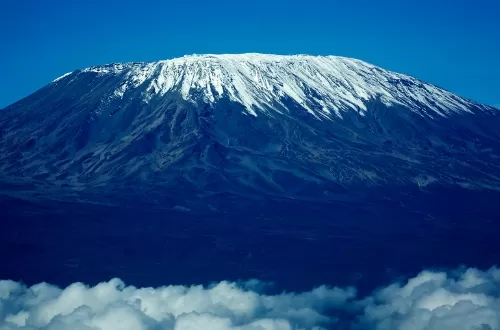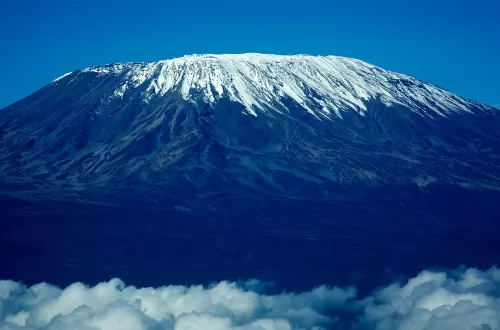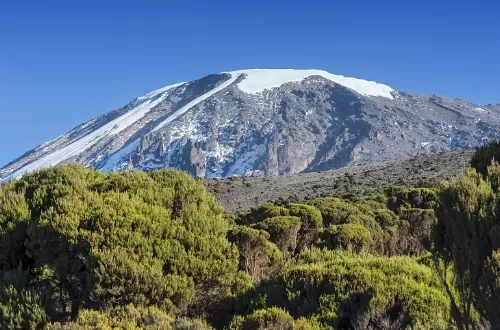Climbing Kilimanjaro at 5,895 meters in Tanzania is considered the best African adventure by many mountain hikers around the world who want to summit Africa's highest snow-capped peak. Tanzania's climbing Kilimanjaro trip can be a rewarding and challenging experience, and there are best 8 things that you may wish you knew before embarking on the tour. It's important to check with your tour operator to ensure that you have all the necessary documents and paperwork and to know what's needed before you travel to climb Kilimanjaro.

Climbing Kilimanjaro - The roof of Africa
Do you need a satisfied Kilimanjaro climbing trip?
Get a free, best price-guaranteed Mount Kilimanjaro hiking trip quote and a quick response from us in 2024 and 2025. Call +255 747 989 416 on WhatsApp or email us at exploreafrica024@gmail.com to get a free quote. We are available 24/7 and we are happy to help you.
1. Visa
Most tourists to Tanzania require a round-trip visa and demonstrate they have sufficient funds for their stay. Since we are the best African Kilimanjaro hiking operator, we are available to help you get a visa before you travel. Call us via WhatsApp at +255 747 989 416 or email us at exploreafrica024@gmail.com to get more details about visas and assistance in getting them, thus fulfilling your dreams of summiting Africa's highest mountain at 19,341 feet.
2. A valid passport
One of the most important documents required to enter Tanzania is a valid passport. Make sure your passport is valid for at least six months beyond your intended date of departure from Tanzania. Visitors who enter on visas must present a roundtrip ticket and demonstrate they have sufficient funds for their stay.
3. Travel insurance
It's highly recommended that you purchase travel insurance before climbing Kilimanjaro. It should cover medical evacuation, emergency medical expenses, and trip cancellation or interruption.
4. Medical certificate
You will be required to present a medical certificate showing that you are fit to climb Kilimanjaro, the highest freestanding mountain in the world. This certificate is signed by a doctor and indicates that you have no underlying medical conditions that could put you at risk during the climb.


5. Physical fitness
Climbing Kilimanjaro is a physically demanding activity, especially on the Machame and Umbwe routes, and it's important to prepare your body for the challenge. Training beforehand by doing cardio, strength, and endurance exercises can help you prepare for the climb.
6. Kilimanjaro packing
Knowing what to pack for your Kilimanjaro hike can make a big difference in your experience. You'll want to pack comfortable, breathable clothing that is appropriate for the climate, as well as essential gear like trekking boots, a good-quality sleeping bag, and a warm jacket.
7. Mental preparation
Not only is climbing Kilimanjaro physically challenging, but it is also mentally challenging. Preparing yourself mentally for the climb by setting realistic expectations, staying positive, and focusing on your goals can help you stay motivated and enjoy the journey.
8. Choosing the right route
There are several routes to choose from when climbing Kilimanjaro, each with their own advantages and challenges. Here is the best list of Kilimanjaro routes for you in 2024 and 2025.
6 days Marangu route - The best route for beginners and unexperienced hikers
6 days Machame route - The popular route on Mount Kilimanjaro
7 days Lemosho route - 95% successful summit rate
Best time to do the Kilimanjaro climbing tour
The best time to do the Kilimanjaro climbing tour is during the dry season, which is June, July, August, September, and October, and January to February, for the best weather conditions and activities. During the dry season, the weather is usually clear and dry, with little to no rainfall, and offers clearer views of the mountain and the surrounding landscapes. In these best months in Tanzania, it is easier to climb Mount Kilimanjaro, the tallest African peak at 5895 meters, and enjoy the park's other activities, such as wildlife viewing, camping, and hiking.
Kilimanjaro National Park costs and fees
From $150 to $300 is the best Kilimanjaro National Park fees are per day, per person, including park entrance fees, camping and hut fees, rescue fees, and park fees for porters and guides. To enter Kilimanjaro National Park, visitors are required to pay various fees, which are used to support conservation efforts and park management. The fees vary depending on several factors, such as the number of days spent in the park, nationality, and type of activity undertaken.
8 most important things to know before climbing Kilimanjaro in Tanzania